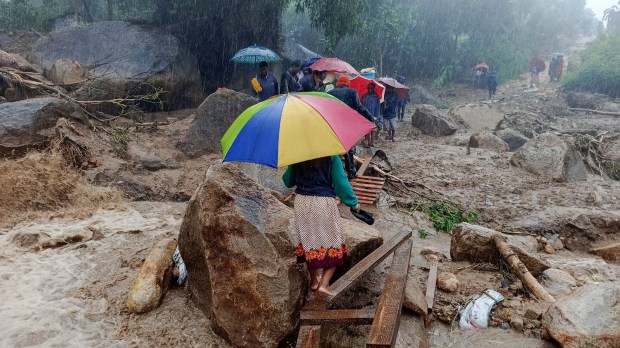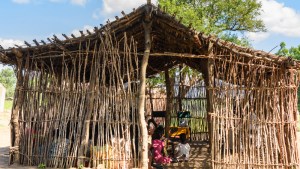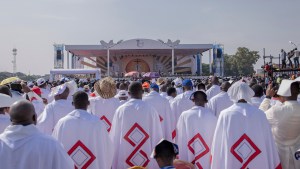The recent tropical cyclone in Malawi was a “huge tragedy that has never happened in the history of the country,” said Archbishop George Desmond Tambala of Lilongwe and President of the Episcopal Conference of Malawi.
Cyclone Freddy, which devastated Malawi in early March after hitting Madagascar and Mozambique, claimed more than 600 lives in the country, and many people are still missing, Archbishop Tambala said.
“People do not know where their missing family members and acquaintances have ended up,” the archbishop said in an interview with Fides, the information service of the Pontifical Mission Societies. “Then there is the problem of food and the problem of destroyed homes, while schools, at least the undamaged ones, are slowly reopening.”
Meanwhile, there is a real danger of resurgence of a cholera epidemic that Malawi had been dealing with for the past few years, a representative of Catholic Relief Services told Aleteia.
“The cyclone has come at a time when the population has been battling cholera,” said Sekai Mudonhi, country representative in Malawi. “It’s been in the country since 2022. We are going to see quite a lot of resurgence even in those areas where it had been contained.”
She added that not only have people’s houses been destroyed, but their livelihoods have been decimated as well by the cyclone. “So they’re being hosted in various camps throughout the country,” she said. “Right now they are living in tents where they are being provided with humanitarian support.”
Archbishop Tambala said that international aid is arriving as the government has mobilized its resources. “Once the emergency phase is over, the main problem will be that of reconstruction from housing to public buildings, from bad roads to collapsed bridges,” he said.
Mudonhi said that CRS is focusing on “WASH” – water, sanitation and health – in the various camps and for people who are still in houses that were not destroyed. CRS is distributing hygiene kits for women and making sure people have safe drinking water.
The agency also is providing materials that can be used to quickly construct temporary shelters.
She said that some people she visited recently told her about how their whole village – all its houses – “were just taken away by the water. They were lucky to survive because they took heed of the early warning prior to the rains coming. They got refuge at the nearby shopping center before the rain started falling. But because their houses were not properly built they were all wiped away by the water.”
Archbishop Tambala said the response of the faithful has been encouraging.
“Faced with this tragedy, people have not lost faith and hope,” he said. “The faithful are coming to Mass even more than before the tragedy caused by the cyclone. They seek comfort from our priests but most of all they offer themselves to help others. I have discovered how most people care about being supportive of one another. From the point of view of faith, the most relevant thing is precisely the rediscovery of the value of solidarity that translates into concrete gestures. There are families sharing what little they have; women joining together to cook food for those who have nothing.”



